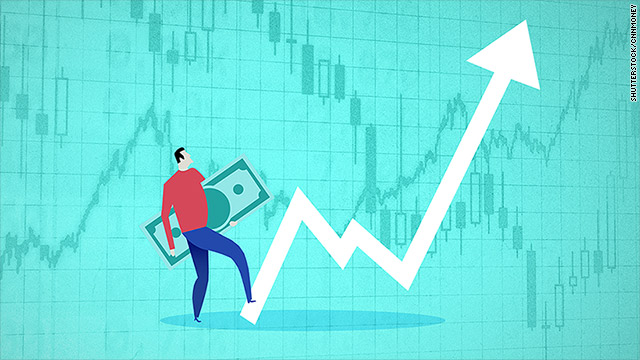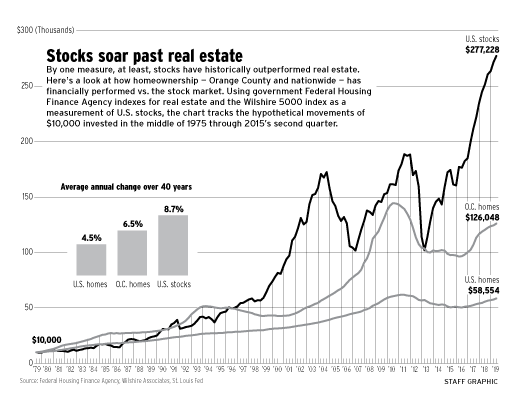The term investment account refers to how you hold the funds used to buy stocks, bonds, mutual funds, or a combination of these. The principle of investing is that you put money into an account or fund to make a profit.
When you start saving to an investment account and choose to invest, you are not buying shares in just one company. Each investment fund includes a wide range of companies; if one company does poorly during the year, another can do well, which provides a balance of losses and growth. Both types of stocks tend to have a large number of stocks and other investments in the fund, making them more diversified than a single stock.
By including asset categories with investment returns that fluctuate up and down under different market conditions in a portfolio, an investor can help protect against significant losses. By investing in more than one category of assets, you will reduce the risk of losing money, and the overall return of your portfolio will be more stable. If you have a long-term financial goal, you are more likely to earn more by carefully investing in higher-risk asset categories such as stocks or bonds rather than limiting your investments to lower-risk assets such as cash equivalents. . Conventional wisdom says that older investors approaching retirement age should reduce their exposure to risk by shifting some of their investments from stocks to bonds.
If you plan to buy securities such as stocks, bonds or mutual funds, it is important to understand before investing that you may lose some or all of your money. If you invest heavily in your employer’s stock, or any individual stock, you are exposed to significant investment risk.
For example, if you’re saving for a long-term goal like retirement or college, most financial experts agree that you’ll probably need to include at least a few stocks or mutual funds in your portfolio. If you have a 401(k) retirement account at work, you may already be investing in your future by investing in mutual funds and even stocks in your company. Your money is not guaranteed against losses and there are no tax benefits, but there may be more flexibility for withdrawals than with a retirement investment account.
If you meet the minimum requirements to open an account, you can invest up to $50 or $100 per month in a mutual fund. Minimum account requirements may apply to certain types of accounts (such as managed accounts) and/or the purchase of certain Fidelity mutual funds that have minimum investment requirements. Other account fees, fund fees and brokerage fees may apply. When investing in mutual funds, the investor will have to pay a lot of fees.
Remember that the efficiency of your investments will be higher if you choose investments with a low commission. Enjoy being inspired and gathering material for future initiatives in October, but don’t spend too much time or money on something that won’t satisfy you in the long run.
Whether you are planning to start investing or are already an experienced investor, the investment calculator will help you figure out how to achieve your goals. Our investment calculator shows you how much money you invest will increase over time. The investment calculator can show you how your initial investment, contribution frequency, and risk tolerance can impact the growth of your money.
The money you invest in stocks and bonds can help a company or government grow, earning you compound interest in the process. By making regular investments of the same amount each time, you buy more investments when prices are low and less investments when prices are high.
Now that you understand the different types of investments, you can move towards your financial goals. Once you’ve chosen an account type for your travels, it’s time to pack your bags, in other words, you need to choose which type of investments to keep in your account so that your funds have the best chance of over time growth opportunities. You as an individual transfer funds to a brokerage firm; choose personal investments such as stocks. When opening a brokerage account, an online brokerage like Schwab or Fidelity will ask you what your investment goals are and how much risk you’re willing to take.
More “traditional” online brokers, such as the two mentioned above, allow you to invest in stocks, bonds, exchange-traded funds (ETFs), index funds, and mutual funds. Lately many brokers have been busy reducing or eliminating transaction fees and ETFs offer index investments to anyone who can trade with an important brokerage account, all brokers need to make money from their clients in one way or another. Funds held in your brokerage accounts are not insured by the FDIC but protected by the SIPC.
Funds deposited with Checking will be eligible for FDIC insurance up to $250,000. Through cash reserves, client funds are deposited with one or more banks (“soft banks”) whose funds are subject to floating interest rates and are eligible for FDIC insurance. Even with more than four program banks, customers will not necessarily have a deposit set aside for the above FDIC insurance (or $2,000,000.00 for a joint account).
ETFs are subject to market volatility and the risks associated with their underlying investments. Before investing, consider the investment objectives, risks, fees, and costs of mutual funds, publicly traded funds, 529 plans, achievable savings or annuity plans, and mutual fund investment options.
Your income should cover your basic expenses, and the balance should be enough to save and invest most of it for retirement. For most people, the only way to get financial security is to save and invest over a long period of time. Sure, you can expect a 10 percent rate of return if you want to be sure of your future financial security, but you probably won’t get an accurate picture of your investment potential.
Helpful Links:
Homepage
About
Contact
Personal Development Partner





